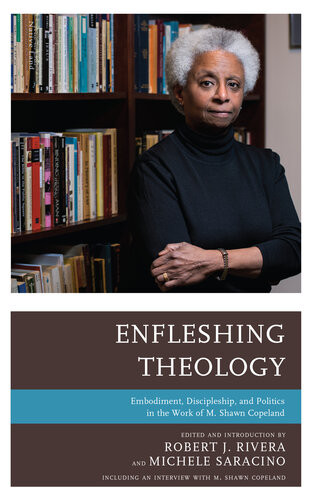

Most ebook files are in PDF format, so you can easily read them using various software such as Foxit Reader or directly on the Google Chrome browser.
Some ebook files are released by publishers in other formats such as .awz, .mobi, .epub, .fb2, etc. You may need to install specific software to read these formats on mobile/PC, such as Calibre.
Please read the tutorial at this link: https://ebookbell.com/faq
We offer FREE conversion to the popular formats you request; however, this may take some time. Therefore, right after payment, please email us, and we will try to provide the service as quickly as possible.
For some exceptional file formats or broken links (if any), please refrain from opening any disputes. Instead, email us first, and we will try to assist within a maximum of 6 hours.
EbookBell Team

0.0
0 reviewsEnfleshing Theology honors and engages the life work of M. Shawn Copeland, whose theology is groundbreaking and prophetic, traversing the fields of Catholic Theology, Black Theology, Womanist Thought, and Semiotics. The book opens with a brief introduction, and then moves to an interview with Copeland, which connects her theology to her life stories. The conversation with Copeland also provides a backdrop to the seventeen essays that follow, extending Copeland's theological worldview. The contributions are divided according to the following sections: embodiment, discipleship, and politics. The essays in the section entitled "Engaging Embodiment" critically reflect on the importance of embodiment in Christian theology and contemporary culture. Following Copeland's lead, authors in this section theorize and theologize the body, particularly (but not limited to) Black women's bodies, as a locus theologicus that reveals, mediates, and shapes the splendor and suffering reality of human existence. The next section, entitled "Engaging Discipleship," focuses on the concrete challenges of following Jesus in today's world. The essays included in this section reflect on Copeland's focus on Jesus' particularity in terms of his solidarity with and for others. Discipleship is about modeling and mentoring, so scholars in this section also comment on Copeland's contribution to teaching and pedagogy. The last section, entitled "Engaging the Political," interrogates the political implications of the theological. It is noteworthy that there are two trajectories of the political here, one is Copeland's development of political theology through the lens of Canadian Jesuit theologian, Bernard Lonergan. The other trajectory focuses on the work of theology in contemporary art and politics. These three sections are fluid and overlap with one another. Several of the articles on embodiment speak to questions of solidarity and a few of the essays on discipleship clearly present as political. The ways in which each of the contributions in this volume overlap with each other attests to the complex nature of doing constructive theology today, and even more how Copeland's work is at the forefront of that multi-layered, polyvalent, intersectional theological work.